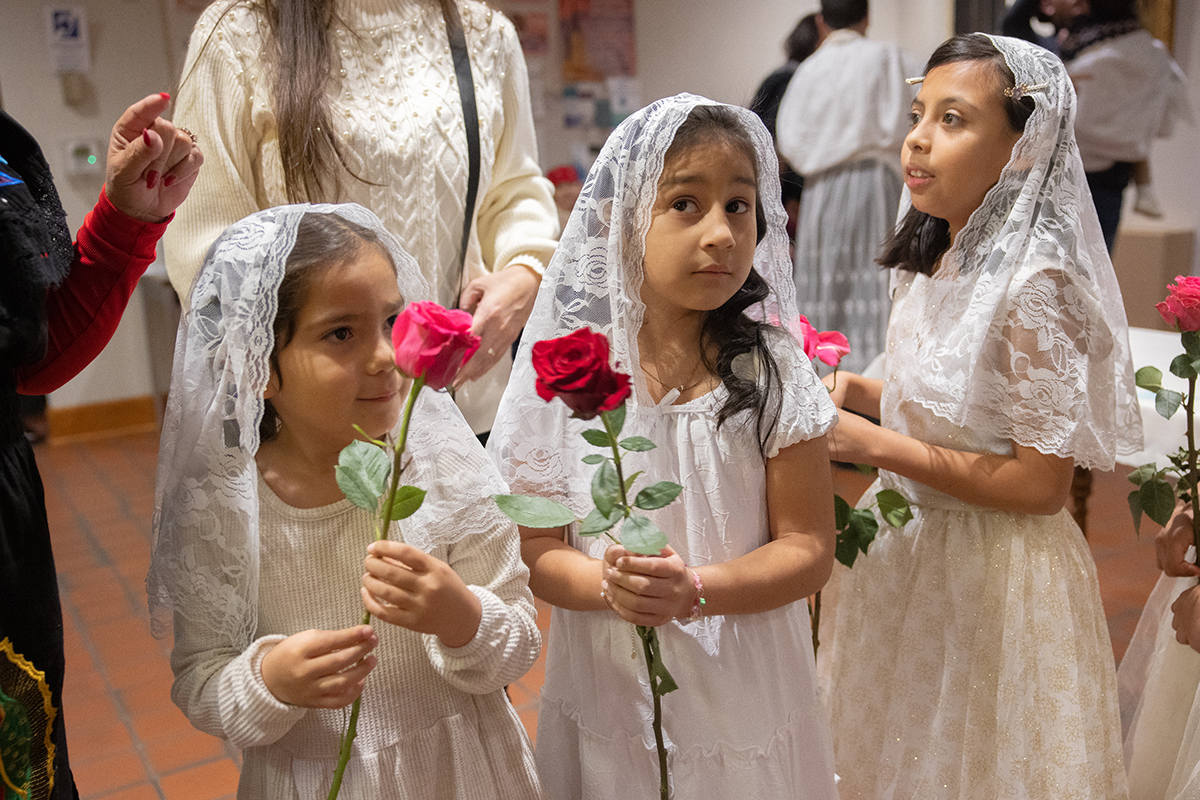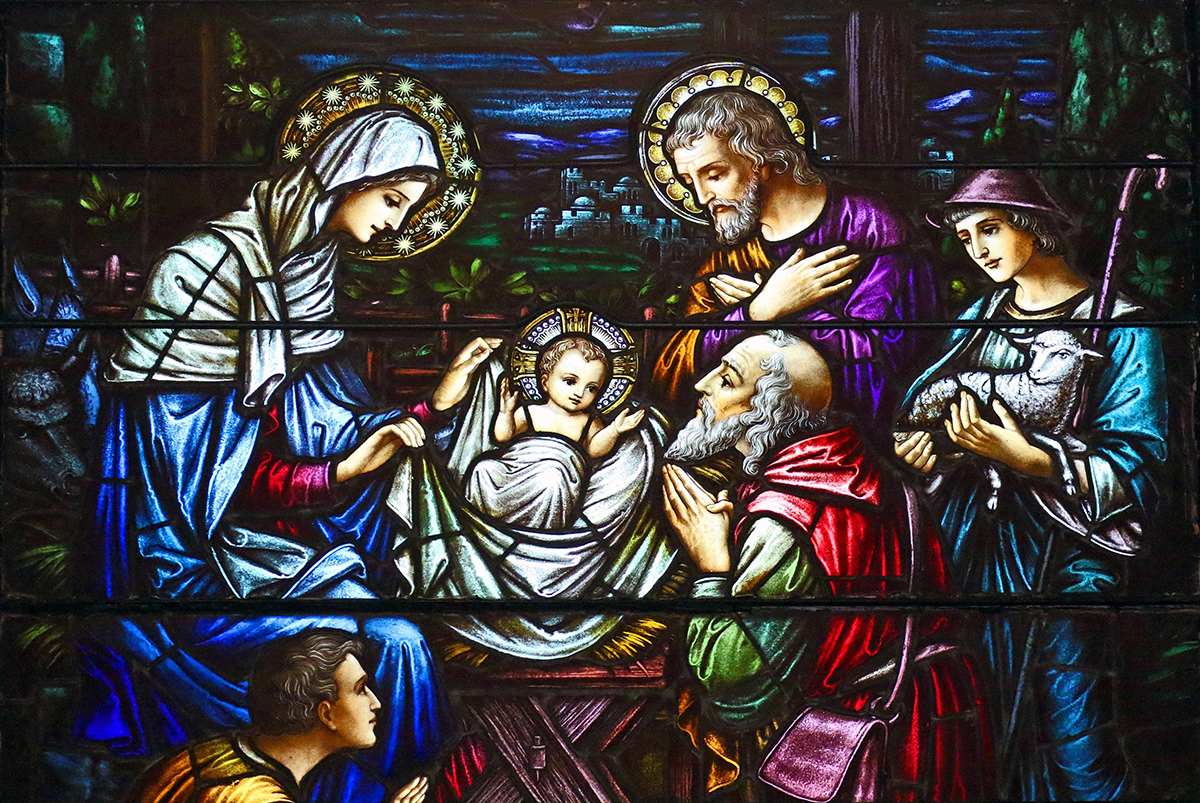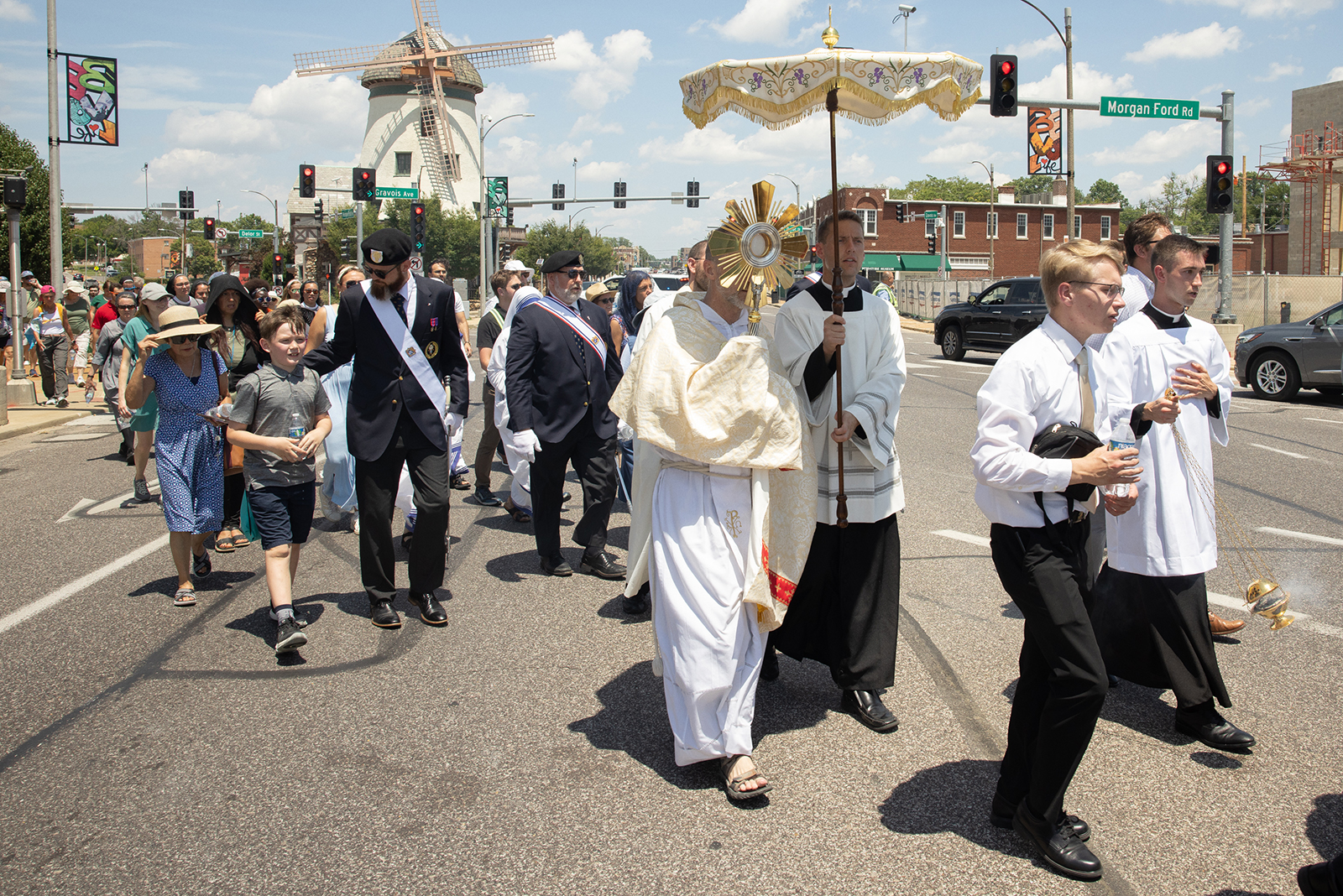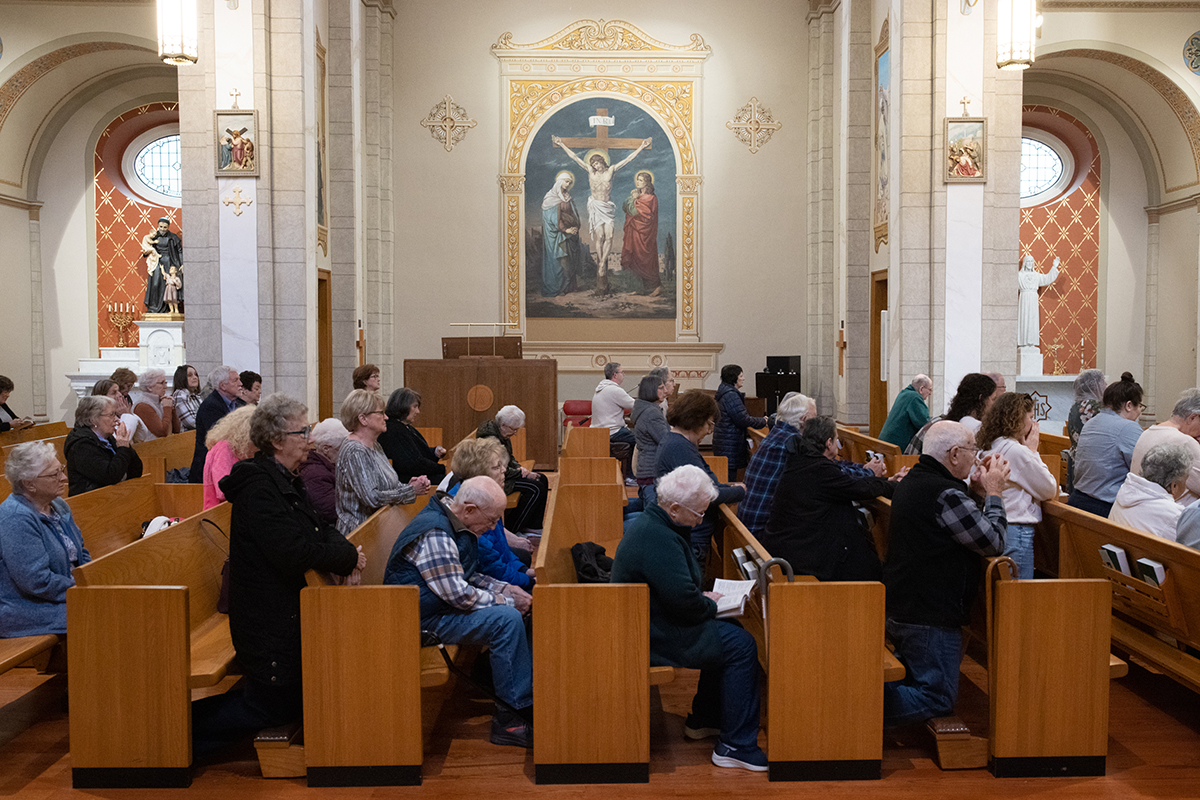Silent walk ties Holocaust to today’s refugees
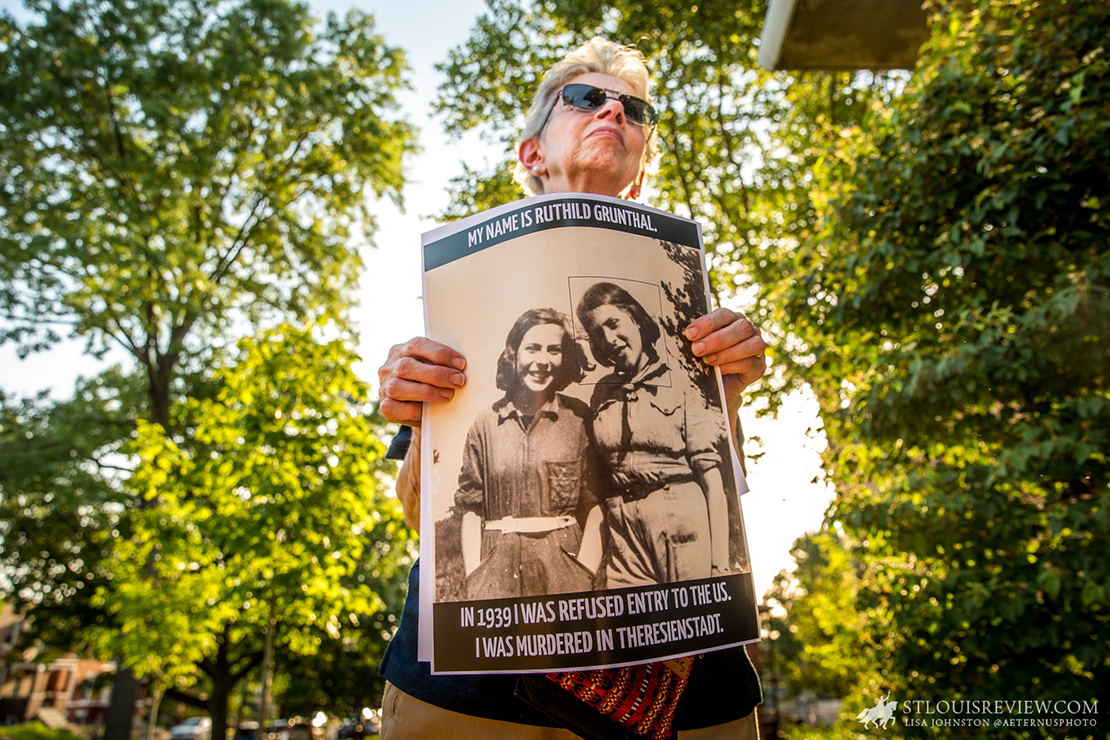
Vigil remembers deaths of M.S. St. Louis passengers
Three dozen people walked silently along the noisy sidewalks of South Grand Boulevard holding posters of people murdered in the Holocaust.
“I was refused entry to the U.S. I was murdered in Auschwitz” read the text on many of the posters, with others citing a different concentration camp.
Onlookers gawked at the procession — one couple began a discussion of the Auschwitz death camp, and a motorist yelled, “Fight the good fight.”
But this was more than just a vigil to remember the 254 passengers of the M.S. St. Louis who lost their lives in the Holocaust due to what organizers called “closed hearts and borders.” It was a time to say “never again” and to relate the plight of refugees of the past to refugees today.
In an effort to flee Nazi Germany, 907 refugees sailed from Hamburg on May 15, 1939, on the M.S. St. Louis and reached Havana, Cuba. After the Cuban government refused to honor the refugees’ accredited landing documents, efforts to find a haven for the desperate refugees elsewhere in the Americas failed. After 12 days of waiting, the St. Louis headed back to Hamburg with all of its passengers.
“We are deporting people now because of the same reasons,” Sister Barbara Jennings, CSJ, said. “They just want freedom and life. As Christian Catholics we are taught to love our neighbor. We’re not immune from this today.”
The archdiocesan Office of Ecumenical and Interreligious Affairs and Office of Hispanic Ministry organized the walk and vigil June 6 along with the Jewish Community Relations Council of St. Louis (JCRC) and the Interfaith Partnership. According to Rori Picker Neiss, executive director of the JCRC, the tragedy of the M.S. St. Louis “is a reminder to all of us that there are real lives at stake when we close our borders and don’t allow people in. In the modern-day debate about immigration and refugee resettlement, it’s often easy to think about people in an abstract way. We’re trying to bring the story to life, a story that to the Jewish community is very personal.”
Picker Neiss added, “We were on the wrong side of history in this story and that makes us question which side of history we’re on right now.”
Faith groups call for people to care for the stranger and the oppressed; some people need resettlement because they are persecuted because of their faith. “It’s too easy to demonize people who are different, and too often in our history we have fallen victim to that,” she said.
David Oughton, associate professor in the Department of Theological Studies at Saint Louis University, said “it’s very important to remember those people who could have been saved in the Holocaust but who were not because of decisions government officials made in 1939. … (The story) reminds us that countries have to protect people fleeing from dictatorships and seeking asylum,” Oughton said.
Max Kaiser, a member of St. Mary of Victories Parish in St. Louis and a member of the Interfaith Partnership of St. Louis, participated in the march to show ecumenical support for increased religious and racial diversity and tolerance in the region. “This is a good move to show there is concern among Catholic and other faith communities for rights in the past as well as the present,” he said.
The marchers walked to the International Institute on Arsenal Street. Outside, next a pole flying a U.S. flag, the passengers’ names and locations of their murders were read. The process took more than 30 minutes.
While most speakers at the vigil decried recent anti-immigrant sentiment, Sister Rosario Bobadilla, CSJ, looked to the future with hope. “I believe that altogether we can work to make this world better and we can reform immigration laws,” she said.
Three dozen people walked silently along the noisy sidewalks of South Grand Boulevard holding posters of people murdered in the Holocaust. “I was refused entry to the U.S. I was … Silent walk ties Holocaust to today’s refugees
Subscribe to Read All St. Louis Review Stories
All readers receive 5 stories to read free per month. After that, readers will need to be logged in.
If you are currently receive the St. Louis Review at your home or office, please send your name and address (and subscriber id if you know it) to subscriptions@stlouisreview.com to get your login information.
If you are not currently a subscriber to the St. Louis Review, please contact subscriptions@stlouisreview.com for information on how to subscribe.

